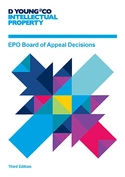Unwired Planet and Conversant: UK courts may set global FRAND terms
In an earlier article, we provided a summary of the main findings of the UK Supreme Court in appeals related to the setting of a global, FRAND, patent licence by the English Patents Court. This article sets this judgment in context, and explores how this judgment and others in related cases may provide guidance for the owners or implementers of standards essential patents (SEPs).
Sequencing of trials in the UK
A licence concluded with an implementer and indicating the consent of the patent proprietor to the implementer using an invention protected by a patent provides a defence to a claim of patent infringement in respect of a valid UK patent. If the patent is associated with a FRAND obligation, a licence offered by the proprietor must be on FRAND terms. If the implementer declines to agree to these terms, and thus is found to infringe the patent, the proprietor may seek an injunction under UK patent law.
In the present cases, the patent owners (Unwired Planet and Conversant) initiated proceedings for patent infringement in respect of specific UK patents, against Huawei and/or ZTE, which in turn sought (or are seeking) to obtain a FRAND licence from Unwired to avoid an injunction. In particular, Huawei asserted that a UK-only licence to Unwired’s UK patents would be FRAND and repeatedly declined to take a worldwide licence counter offered by Unwired Planet.
The questions of infringement and validity (where contested) were dealt with in a series of technical trials, each addressing one or two patents. Subsequently, a FRAND or non-technical trial addressed issues relating to the effect of the FRAND obligation.
Are technical trials needed at all?
The approach of holding technical trials first may be beneficial for both sides.
Where the patent owner has a relatively small portfolio, a finding that patents are invalid or not infringed, or both, could result in a significant reduction in the determined FRAND royalty rate.
At the same time, the technical trial strengthens the patent holder’s position in any subsequent debate concerning the forum conveniens for the non-technical trial: the Supreme Court, obiter, remarked that while the non-technical trial could be seen as relating primarily to a contract law dispute regarding the FRAND obligation, it preferred the view that it was primarily a UK patent infringement dispute.
It remains unclear if holding a non-technical, FRAND, trial may be possible without incurring the delay and expense of the technical trials. In the absence of consent by both parties, the question of forum (non) conveniens may however arise.
The validity and infringement of non-UK patents
The determined FRAND rate was calculated based on non-UK patent rights, which had not been confirmed as valid and infringed in their respective jurisdictions. The Supreme Court explained that although the terms of the FRAND licence involved potentially disputed foreign patents, the lower courts had simply recognised that commercial practice was to agree to such a licence, noting: “By taking out a licence of an international portfolio of generally untested patents the implementer buys access to the new standard. It does so at a price which ought to reflect the untested nature of many patents in the portfolio; in so doing it purchases certainty”.
The Supreme Court went further, explicitly suggesting that a fair negotiation may include a provision for an adjustment of royalties based on subsequent findings related to validity or infringement. However, they recognised that as a practical matter, such challenges, while reducing the uncertainty, may not be cost effective.
We would observe that this logic could potentially be extended to the UK patents in suit, and the Supreme Court’s (obiter) remarks could be construed as a hint that certainty regarding the UK patents, and thus the technical trials themselves, are not an essential pre-requisite to a non-technical FRAND trial in the UK courts.
Setting the FRAND terms: the “Vringo” problem wrapped up
In Vringo v ZTE ([2013] EWHC 1591 (Pat) and [2015] EWHC 214 (Pat)) the English High Court had considered it possible that multiple licence terms could be FRAND, such that both parties might propose (different) terms which were simultaneously FRAND.
At first instance in the Unwired Planet case, the judge concluded that, on the contrary, only one set of terms could be FRAND in given circumstances. This finding was overturned by the Court of Appeal who also resolved the “Vringo” problem by noting that the obligation is for the licensor to offer FRAND terms. Thus, where two sets of terms were FRAND, “the SEP owner will satisfy its [FRAND obligation] if it offers either one of them”. The implementer cannot, in such circumstances, require the patent owner to accept alternative terms, even if those alternative terms are FRAND (UK CA (Huawei) : [2018] EWCA Civ 2344).
Thus, even if a UK-only licence was considered to be FRAND, Unwired Planet was not obliged to offer the same terms of that licence to Huawei, because Unwired Planet had offered the (court-determined, FRAND) global licence.
Setting the FRAND terms: competition law
The role of competition law in assessing FRAND terms in Europe appears very much as a backstop: although an anti-competitive agreement would not be FRAND, it is not necessarily the case that non-FRAND terms would necessarily be anti-competitive. As Birss J put it: “as a matter of principle, the boundary between what is and is not a true FRAND rate as defined by the ETSI undertaking is not and cannot be necessarily coextensive with competition law…Competition law considerations may well indicate why a rate is not FRAND but in general and as a matter of principle, for competition law to be engaged, it will be necessary but not sufficient for a rate not to be the true FRAND rate” [emphasis added].
Remedies – the FRAND injunction
Finding that an injunction was in fact justified in the circumstances, Birss J issued a FRAND injunction against Huawei (stayed pending appeals). This is an injunction which ceases to have effect if the defendant enters into the FRAND licence, and does not in any case extend beyond the duration of the FRAND licence (in this case, beyond 31 December 2020).
Waiving reliance on a (F)RAND obligation
In TQ Delta v ZyXEL, the defendant (ZyXEL) waived the right to obtain a RAND licence in respect of the claimant’s UK patents, and requested that a scheduled non-technical trial be cancelled ([2019] EWHC 1089 (Pat)).
TQ Delta sought to continue with the non-technical trial, seeking a declaration that ZyXEL were unwilling licensees. The utility of such a declaration was said to be that it would be persuasive in proceedings in foreign jurisdictions, were TQ Delta to seek to obtain injunctive relief for infringement of patents in those jurisdictions.
However, the Court of Appeal [2019] EWCA Civ 1277 held TQ Delta had no real prospect of successfully obtaining such a declaration and that the utility of the non-technical trial had fallen away, noting that: “It would be an exercise in jurisdictional imperialism to foist this court’s view as to whether ZyXEL were unwilling licensees, or holding-out on an unknown foreign jurisdiction.”
Although the facts of this case are unusual (the valid and infringed patent was shortly to expire), patent owners should be alive to the possibility that a defendant could elect to withdraw from the UK entirely should the cost of a court-determined (F)RAND licence (which might be a global licence) outweigh the benefits of participation in the UK market.
Concluding remarks
The UK courts are generally reluctant to address issues where there is no real dispute, as seen in TQ Delta v ZyXEL. However, they have shown themselves to be flexible in patent cases, through the use of declarations (such as Arrow declarations which can be a tool for implementers looking to “clear the way”).
A technical trial in the UK can result in a declaration that a patent is essential to a standard. Based on this declaration, a proprietor may be able to initiate a UK FRAND trial against a new defendant to directly address the questions of FRAND terms and, if a license offered on FRAND terms is declined, remedies, without requiring a further technical trial against the new defendant.
Thus, while the UK courts have demonstrated willingness and competence to complete an entire sequence of technical and non-technical trials, it remains to be seen whether and to what extent, a streamlined approach could be taken.
Our earlier (related) article
Supreme Court confirms English courts able to set global FRAND terms
Read more
